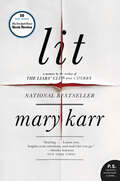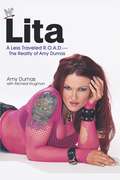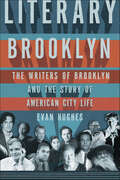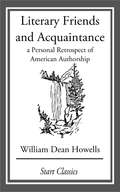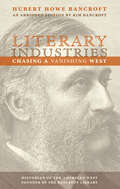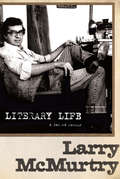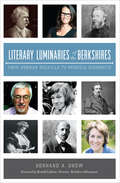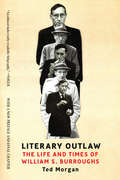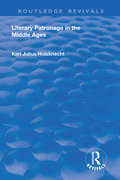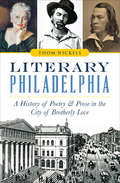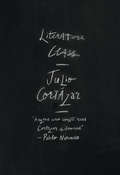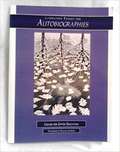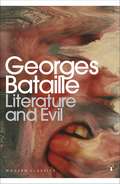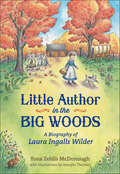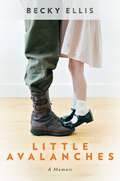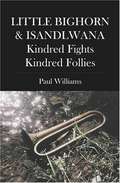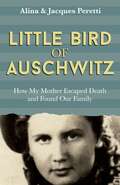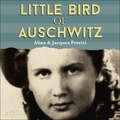- Table View
- List View
Liszt
by Sacheverell SitwellBiography of the famous composer, a man of extraordinary magnetism and a pianist of unsurpassed virtuosity. Bibliography and a catalog of Liszt's works included.
Liszt: The Artist as Romantic Hero
by Eleanor PerenyiBiography of the famous composer, his romantic origins, his grand and literary passions, his years of pilgrimage, his stays at Vienna and Weimar. Includes a chronology and bibliography.
Lit: A Memoir (P. S. Series)
by Mary KarrThe Liars' Club brought to vivid, indelible life Mary Karr's hardscrabble Texas childhood. Cherry, her account of her adolescence, "continued to set the literary standard for making the personal universal" (Entertainment Weekly). Now Lit follows the self-professed blackbelt sinner's descent into the inferno of alcoholism and madness--and to her astonishing resurrection. Karr's longing for a solid family seems secure when her marriage to a handsome, Shakespeare-quoting blueblood poet produces a son they adore. But she can't outrun her apocalyptic past. She drinks herself into the same numbness that nearly devoured her charismatic but troubled mother, reaching the brink of suicide. A hair-raising stint in "The Mental Marriott," with an oddball tribe of gurus and saviors, awakens her to the possibility of joy and leads her to an unlikely faith. Not since Saint Augustine cried, "Give me chastity, Lord--but not yet!" has a conversion story rung with such dark hilarity. Lit is about getting drunk and getting sober; becoming a mother by letting go of a mother; learning to write by learning to live. Written with Karr's relentless honesty, unflinching self-scrutiny, and irreverent, lacerating humor, it is a truly electrifying story of how to grow up--as only Mary Karr can tell it.
Lita: A Less Traveled R.O.A.D.--The Reality of Amy Dumas (WWE)
by Michael Krugman Amy DumasAn exciting account of Amy Dumas—better known under her ring name Lita—and how she become one of the greatest female performers in WWE history.Taking unexpected risks, daring to do what no one has done before, that's the reality of Amy Dumas, the remarkable woman behind Lita. With only a guidebook for a companion, Amy traveled to Mexico City in the late 1990s to learn about lucha libre, Mexico's professional wrestling. When she returned to the States, she was resolute in her goal to be a professional wrestler. Amy found people who saw her determination and her heart, and agreed to train her. She met a number of wrestlers who would prove influential in her career. Among them were two North Carolina stars who had just signed with World Wrestling Entertainment—Matt and Jeff Hardy. Amy formed an instant bond with the brothers; their high-flying bravado inspired her own ring style. It wasn't long before Amy—now christened Lita—joined WWE. She proved to be a pioneer in women's wrestling. It took a broken neck suffered on the set of a television series to stop her...but only temporarily. Lita is the stirring tale of one young woman's amazing journey to the top of WWE.
Literary Brooklyn: The Writers of Brooklyn and the Story of American City Life
by Evan HughesFor the first time, here is Brooklyn's story through the eyes of its greatest storytellers—Walt Whitman, Henry Miller, Truman Capote, Paula Fox, and others.Like Paris in the twenties or postwar Greenwich Village, Brooklyn today is experiencing an extraordinary cultural boom. In recent years, writers of all stripes—from Jhumpa Lahiri, Jennifer Egan, and Colson Whitehead to Nicole Krauss and Jonathan Safran Foer—have flocked to its patchwork of distinctive neighborhoods. But as literary critic and journalist Evan Hughes reveals, the rich literary life now flourishing in Brooklyn is part of a larger, fascinating history. With a dynamic mix of literary biography and urban history, Hughes takes us on a tour of Brooklyn past and present and reveals that hiding in Walt Whitman's Fort Greene Park, Hart Crane's Brooklyn Bridge, the raw Williamsburg of Henry Miller's youth, Truman Capote's famed house on Willow Street, and the contested streets of Jonathan Lethem's Boerum Hill is the story of more than a century of life in America's cities.Literary Brooklyn is a prismatic investigation into a rich literary inheritance, but most of all it's a deep look into the beloved borough, a place as diverse and captivating as the people who walk its streets and write its stories.“In a way, the literary history of Brooklyn is like a literary history of America itself—not because America is like Brooklyn, which it isn't, but because it is a story of a certain set of writers describing what they knew as America came into being, as the country invented a literature of its own.” ―Los Angeles Times“An engrossing cultural memoir.” ―New York Daily News
Literary Friends and Acquaintance: A Personal Retrospect of American Authorship
by William Dean HowellsBiographical -- My First Visit to New England -- First Impressions of Literary New York -- Roundabout to Boston -- Literary Boston As I Knew It -- Oliver Wendell Holmes -- The White Mr. Longfellow -- Studies of Lowell -- Cambridge Neighbors -- A Belated Guest -- My Mark Twain.
Literary Industries: Chasing a Vanishing West
by Hubert BancroftA bookseller in San Francisco during the gold rush, Hubert Howe Bancroft (1832-1918) rose to become the man who would define the early history of California and the West. Creating what he called a “history factory,” he assembled a vast library of over sixty thousand books, maps, letters, and documents; hired scribes to copy material in private hands; employed interviewers to capture the memories of early Spanish and Mexican settlers; and published multiple volumes sold throughout the country by his subscription agents. In 1890 he published an eight-hundred-page autobiography, aptly entitled Literary Industries. Literary Industries sparkles with the exuberance of nineteenth-century California and introduces us to a man of great complexity and wit. Edited for the modern reader and yet relating the history of the West as it was taking place--and as it was being recorded--Kim Bancroft’s edition of Literary Industries is a joy to read.
Literary Industries: Chasing a Vanishing West
by Hubert Howe BancroftAn autobiography of the bookseller, library collector, man of letters, and historian of the American West edited by his great-great granddaughter. A bookseller in San Francisco during the gold rush, Hubert Howe Bancroft (1832–1918) rose to become the man who would define the early history of California and the West. Creating what he called a &“history factory,&” he assembled a vast library of over sixty thousand books, maps, letters, and documents; hired scribes to copy material in private hands; employed interviewers to capture the memories of early Spanish and Mexican settlers; and published multiple volumes sold throughout the country by his subscription agents. In 1890 he published an eight-hundred-page autobiography, aptly entitled Literary Industries. Literary Industries sparkles with the exuberance of nineteenth-century California and introduces us to a man of great complexity and wit. Edited for the modern reader and yet relating the history of the West as it was taking place—and as it was being recorded—Kim Bancroft&’s edition of Literary Industries is a joy to read.
Literary Life
by Larry McmurtryPulitzer Prize and Oscar winner Larry McMurtry's engrossing and deeply personal reflections on the life of a writer.
Literary Luminaries of the Berkshires: From Herman Melville to Patricia Highsmith
by Bernard A. DrewThe literary history behind this beautiful mountain region. The Massachusetts Berkshires have long been a mecca for literary greats, from Henry Wadsworth Longfellow and Edith Wharton to Sinclair Lewis and Joan Ackermann. The Green River in Great Barrington inspired William Cullen Bryant&’s poetry. Charles Pierce Burton&’s childhood hometown, Adams, became the setting for his frolicking Boys of Bob&’s Hill children&’s books. During an interlude in Lenox, Patricia Highsmith consulted a local undertaker for details to use in The Talented Mr. Ripley. In this book, Bernard A. Drew brings together a fascinating chronicle of some 250 wordsmiths who took inspiration from the hills and valleys of the Berkshires.
Literary Outlaw: The Life and Times of William S. Burroughs
by Ted Morgan"Almost indecently readable . . . captures [Burroughs's] destructive energy, his ferocious pessimism, and the renegade brilliance of his style."--Vogue With a new preface as well as a final chapter on William S. Burroughs's last years, the acclaimed Literary Outlaw is the only existing full biography of an extraordinary figure. Anarchist, heroin addict, alcoholic, and brilliant writer, Burroughs was the patron saint of the Beats. His avant-garde masterpiece Naked Lunch shook up the literary world with its graphic descriptions of drug abuse and illicit sex--and resulted in a landmark Supreme Court ruling on obscenity. Burroughs continued to revolutionize literature with novels like The Soft Machine and to shock with the events in his life, such as the accidental shooting of his wife, which haunted him until his death. Ted Morgan captures the man, his work, and his friends--Allen Ginsberg and Paul Bowles among them--in this riveting story of an iconoclast.
Literary Patronage in The Middle Ages: A Thesis, In English (classic Reprint) (Routledge Revivals)
by Karl Julius HolznechtPublished in 1966: The present study attempts in its fashion to supply a connected account of this somewhat neglected phase of medieval literary life, and to look carefully in earlier ages for the origins of medieval patronage. As one may suppose a patron might be approached and the modes in which his favour might be extended were exhausted at a very early period, so that patronage of letters cannot be said to show much development or progress.
Literary Philadelphia: A History of Poetry & Prose in the City of Brotherly Love
by Thom Nickels&“Peppered with many . . . unexpected literary treasures . . . A wonderful introduction to/overview of [Philadelphia&’s] abundant literary heritage&” (Philly.com). Since Thomas Paine and Benjamin Franklin put type to printing press, Philadelphia has been a haven and an inspiration for writers. Local essayist Agnes Repplier once shared a glass of whiskey with Walt Whitman, who frequently strolled Market Street. Gothic writers like Edgar Allan Poe and George Lippard plumbed the city&’s dark streets for material. In the twentieth century, Northern Liberties native John McIntyre found a backdrop for his gritty noir in the working-class neighborhoods, while novelist Pearl S. Buck discovered a creative sanctuary in Center City. From Quaker novelist Charles Brockden Brown to 1973 US poet laureate Daniel Hoffman, author Thom Nickels explores Philadelphia&’s literary landscape. Includes photos
Literature After Darwin
by Virginia RichterWhat makes us human? Where is the limit between human and animal? These are questions that haunt post-Darwinian literature. Covering fiction from Kipling to Kafka, this study offers a historically embedded analysis of anthropological anxiety in the period between the publication of the Origin of Species and the beginning of the Second World War.
Literature Class, Berkeley 1980
by Julio Cortázar Katherine SilverA master class from the exhilarating writer Julio Cortázar “I want you to know that I’m not a critic or theorist, which means that in my work I look for solutions as problems arise.” So begins the first of eight classes that the great Argentine writer Julio Cortázar delivered at UC Berkeley in 1980. These “classes” are as much reflections on Cortázar’s own writing career as they are about literature and the historical moment in which he lived. Covering such topics as “the writer’s path” (“while my aesthetic world view made me admire writers like Borges, I was able to open my eyes to the language of street slang, lunfardo…”) and “the fantastic”(“unbeknownst to me, the fantastic had become as acceptable, as possible and real, as the fact of eating soup at eight o’clock in the evening”), Literature Class provides the warm and personal experience of sitting in a room with the great author. As Joaquin Marco stated in El Cultural, “exploring this course is to dive into Cortázar designing his own creations.… Essential for anyone reading or studying Cortázar, cronopio or not!”
Literature Packet for Autobiographies
by Center for Gifted EducationLiterature Packet for High-ability Learners Grades 5 and 6
Literature and Evil (Penguin Modern Classics)
by Georges Bataille'Literature is not innocent,' stated Georges Bataille in this extraordinary 1957 collection of essays, arguing that only by acknowledging its complicity with the knowledge of evil can literature communicate fully and intensely. These literary profiles of eight authors and their work, including Emily Brontë's Wuthering Heights, Baudelaire's Les Fleurs du Mal and the writings of Sade, Kafka and Sartre, explore subjects such as violence, eroticism, childhood, myth and transgression, in a work of rich allusion and powerful argument.
Lithium Jesus: A Memoir of Mania
by Charles Monroe-KaneCharles Monroe-Kane is a natural raconteur, and boy, does he have stories to tell. Born into an eccentric Ohio clan of modern hunter-gatherers, he grew up hearing voices in his head. Over a dizzying two decades, he was many things--teenage faith healer, world traveler, smuggler, liberation theologian, ladder-maker, squatter, halibut hanger, grifter, environmental warrior, and circus manager--all the while wrestling with schizophrenia and self-medication.<P><P> From Baby Doc's Haiti to the Czech Velvet Revolution, and from sex, drugs, and a stabbing to public humiliation by the leader of the free world, Monroe-Kane burns through his twenties and several bridges of youthful idealism before finally saying: enough.<P> In a memoir that blends engaging charm with unflinching frankness, Monroe-Kane gives his testimony of mental illness, drug abuse, faith, and love. By the end of Lithium Jesus there may be a voice in your head, too, saying "Do more, be more, live more. And fear less."
Little Audrey's Daydream: The Life of Audrey Hepburn
by Sean Hepburn Ferrer Katherine Hepburn FerrerLittle Audrey's Dream introduces kids to the life of one of the most beloved actresses. It covers her childhood, living in Europe during WWII and the German Occupation. After the war, she enrolls in a premier ballet school, and from there becomes a performer, acting, singing and dancing. She starts acting in small productions of plays and musicals and is cast in a film. From there she becomes a star. She doesn't let the fame go to her head. She is more focused on where to raise a family because of her great love for children. While raising her own kids, she starts getting involved in the lives of children in need all over the world. This interest became her central goal for the rest of her life. This empathy towards children circles back to her own childhood struggles during WWI. Her strong spirit and determination throughout her life will inspire readers of all ages.
Little Author in the Big Woods: A Biography of Laura Ingalls Wilder
by Yona Zeldis McDonoughMany girls in elementary and middle school fall in love with the Little House books by Laura Ingalls Wilder. What they don't always realize is that Wilder's books are autobiographical. This narrative biography describes more of the details of the young Laura's real life as a young pioneer homesteading with her family on many adventurous journeys. This biography, complete with charming illustrations, points out the differences between the fictional series as well as the many similarities.Yona Zeldis McDonough's Little Author in the Big Woods is a fascinating story of a much-celebrated writer.
Little Avalanches: A Memoir
by Becky EllisA daughter&’s quest for truth. A soldier&’s fight for survival. Their shared search for understanding.Little Avalanches is a gorgeously written memoir of breathtaking scope that propels readers from the beaches of California in the early &‘70s to the battlefields of World War II. As a young girl, Becky is forced to hide from phantom Nazis, subjected to dental procedures without pain medication, and torn from her mother again and again. Growing up in the shadow of her father&’s PTSD, she wants to know what is wrong but knows not to ask. Her father won&’t talk about being a Timberwolf, a unit of specially trained night fighters that went into combat first and experienced a 300 percent casualty rate. He returns home with thirteen medals, including a Silver Star, and becomes a doctor and well-respected member of the community, but is haunted by his past. Seeing only his explosive and often dangerous personality, Becky distances herself from the man she wants to love. Yet on the eve of his ninetieth birthday, when Becky looks at the vulnerable man he&’s become, something shifts, and she asks about the war. He breaks seventy years of silence, offering an unfiltered account of war without glory and revealing the extent of the trauma he&’s endured. She spends the next several years interviewing, researching, and ultimately understanding the demons she inherited. Because his story is incomplete without hers, and hers is inconceivable without his, Ellis offers both, as well as their year-long aching conversation marked by moments of redeeming grace. With compassionate, unflinching writing, Little Avalanches reminds us that we are profoundly shaped by the secrets we keep and forever changed by the stories we share.
Little Bighorn & Isandlwana: Kindred Fights, Kindred Follies
by Paul WilliamsIn June of 1876 Custer's 7th Cavalry was savagely defeated in the Montana wilderness during an unprovoked war to seize the Sioux and Cheyenne hunting grounds. Turning former nations regarding the Battle of the Little Bighorn on their head, Paul Williams penetrates Custer's mind, revealing the devastating logic for the fatal regimental division which led to his own death and the annihilation of his immediate command. Three years later the redcoat troops of Queen Victoria launched an equally outrageous grab for Zulu lands in South Africa, and repeated Little Bighorn history at Isandlwana with their own humiliating destruction. Lieutenant Colonel George A. Custer and Lieutenant Colonel Anthony W. Durnford had much in common, from mode of dress to tactics employed, and the way they died. Here are riveting stories of the two soldiers and their final battles are interwoven, revealing how, to an astonishing degree, similar aims, tactics, personalities, weapons, incidents and underestimation of so-called savages led to tragic defeat.
Little Bird of Auschwitz: How My Mother Escaped Death and Found Our Family
by Jacques Peretti'That nickname . . .''"Little bird." It wasn't mine. I found out later he gave it to every little girl that came in to be injected. "Little Bird" didn't mean anything. It was a trick. There were thousands of "little birds", just like me, all thinking they were the only one.'As a reporter, Jacques Peretti has spent his life investigating important stories. But there was one story, heard in scattered fragments throughout his childhood, that he never thought to investigate. The story of how his mother survived Auschwitz.In the few last months of the Second World War, thirteen-year-old Alina Peretti, along with her mother and sister, was one of thirteen thousand non-Jewish Poles sent to Auschwitz. Her experiences there cast a shadow over the rest of her life.Now ninety, Alina has been diagnosed with dementia. Together, mother and son begin a race against time to record her memories and preserve her family's story. Along the way, Jacques learns long-hidden secrets about his mother's family. He gains an understanding of his mother through retracing her past, learning more about the woman who would never let him call her 'Mum'.
Little Bird of Auschwitz: How My Mother Escaped Death and Found Our Family
by Jacques Peretti'That nickname . . .''"Little bird." It wasn't mine. I found out later he gave it to every little girl that came in to be injected. "Little Bird" didn't mean anything. It was a trick. There were thousands of "little birds", just like me, all thinking they were the only one.'As a reporter, Jacques Peretti has spent his life investigating important stories. But there was one story, heard in scattered fragments throughout his childhood, that he never thought to investigate. The story of how his mother survived Auschwitz.In the few last months of the Second World War, thirteen-year-old Alina Peretti, along with her mother and sister, was one of thirteen thousand non-Jewish Poles sent to Auschwitz. Her experiences there cast a shadow over the rest of her life.Now ninety, Alina has been diagnosed with dementia. Together, mother and son begin a race against time to record her memories and preserve her family's story. Along the way, Jacques learns long-hidden secrets about his mother's family. He gains an understanding of his mother through retracing her past, learning more about the woman who would never let him call her 'Mum'.(P) 2022 Hodder & Stoughton Limited
Little Bird of Auschwitz: How My Mother Escaped Death and Found Our Family
by Jacques Peretti'That nickname . . .''"Little bird." It wasn't mine. I found out later he gave it to every little girl that came in to be injected. "Little Bird" didn't mean anything. It was a trick. There were thousands of "little birds", just like me, all thinking they were the only one.'As a reporter, Jacques Peretti has spent his life investigating important stories. But there was one story, heard in scattered fragments throughout his childhood, that he never thought to investigate. The story of how his mother survived Auschwitz.In the few last months of the Second World War, thirteen-year-old Alina Peretti, along with her mother and sister, was one of thirteen thousand non-Jewish Poles sent to Auschwitz. Her experiences there cast a shadow over the rest of her life.Now ninety, Alina has been diagnosed with dementia. Together, mother and son begin a race against time to record her memories and preserve her family's story. Along the way, Jacques learns long-hidden secrets about his mother's family. He gains an understanding of his mother through retracing her past, learning more about the woman who would never let him call her 'Mum'.

